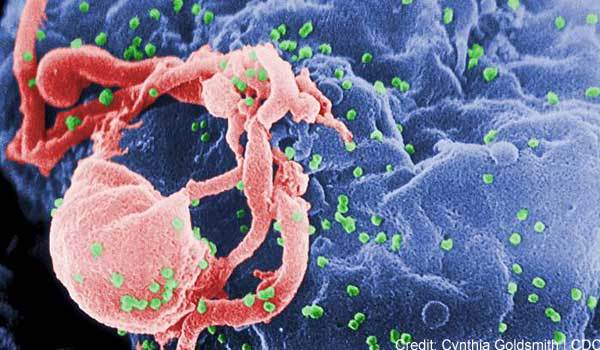Vaginal Ring May Protect Against HIV

A plastic ring containing a drug and inserted into the vagina could prevent HIV transmission during sex, a new study in animals suggests.
In the study, monkeys that received drug-releasing vaginal rings were less likely than other female monkeys to be infected when a version of the AIDS virus was injected by catheter into their vaginas.
The findings suggest that drug-containing vaginal rings have the potential to prevent HIV infection, as well as other sexually transmitted diseases, such as herpes and human papillomavirus (HPV) infections, the researchers said.
While oral anti-retroviral drugs and microbicide gels also have been shown to protect against HIV infection, oral drugs need to be used on a daily basis, and gels need to be applied every time a person has sex. The researchers would like to develop a ring that women could leave in place and "forget about" for at least three months, said study researcher Tom Zydowsky.
"The idea is to give people choices," said Zydowsky, senior scientist at the Population Council, a nonprofit organization in New York City that researches HIV/AIDS and reproductive health.
(Condoms are also very effective at preventing HIV transmission when used properly, but "getting a man to use a condom isn't always in a woman's control," Zydowsky added.)
The study is just a first step in the development of an anti-HIV vaginal ring, and because it was conducted with animals, it is not clear how well the findings will translate to people. The researchers plan to test alternative formulations of the vaginal ring that could protect against a strain of herpes virus as well as HIV, Zydowsky said.
Sign up for the Live Science daily newsletter now
Get the world’s most fascinating discoveries delivered straight to your inbox.
The vaginal rings in the study contained an anti-HIV drug called MIV-150.
Rhesus macaques were given either a vaginal ring containing MIV-150 or a vaginal ring with a placebo. The rings were inserted either two weeks or 24 hours before the monkeys were exposed to a virus called SHIV, which contains genes from both HIV and SIV, the monkey form of HIV.
Among monkeys that received the MIV-150 vaginal ring, two out of 17 (11.7 percent) became infected with the virus, whereas 11 of the 16 monkeys (68.7 percent) became infected. Overall, the vaginal ring was 83 percent effective at preventing SHIV infection compared to the placebo, the researchers said.
The rings protected against HIV regardless of whether they were inserted two weeks or 24 hours before infection, the researchers said. But it was critical that the ring was in place when the monkey was exposed to the virus. Among monkeys that had the ring removed just before exposure, the infection rate was 57 percent (four out of seven monkeys).
The researchers plan to start a human trial with the ring within two years, Zydowsky said.
The study was published today (Sept. 5) in the journal Science Translational Medicine.
Pass it on: A vaginal ring containing an anti-HIV drug was able to reduce the rate of HIV infection in monkeys.
This story was provided by MyHealthNewsDaily, a sister site to LiveScience. Follow Rachael Rettner on Twitter @RachaelRettner, or MyHealthNewsDaily @MyHealth_MHND. We're also on Facebook & Google+.

Rachael is a Live Science contributor, and was a former channel editor and senior writer for Live Science between 2010 and 2022. She has a master's degree in journalism from New York University's Science, Health and Environmental Reporting Program. She also holds a B.S. in molecular biology and an M.S. in biology from the University of California, San Diego. Her work has appeared in Scienceline, The Washington Post and Scientific American.









